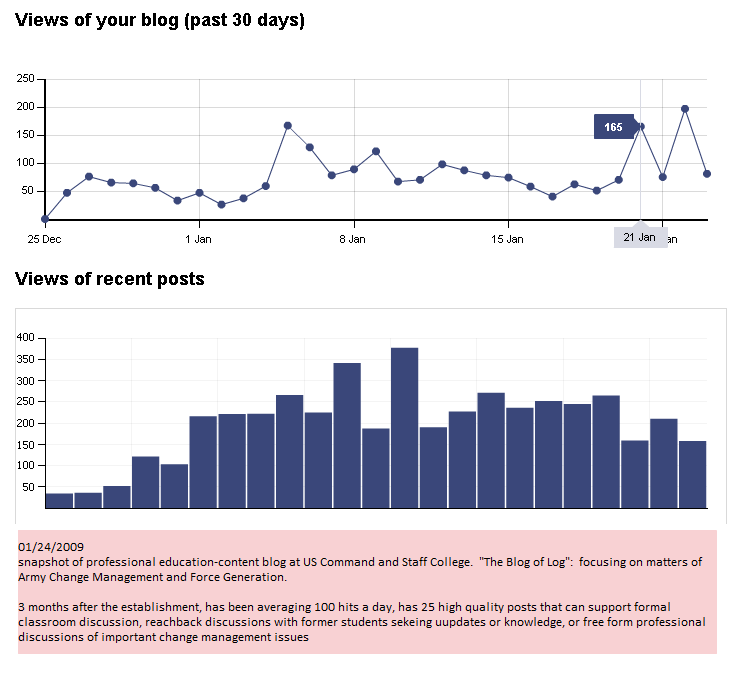The first time I prepared this for an entry on our doctoral discussion forum , I constructed it inside Moodle (our discussion environment; its horrible), attached the file, pushed the upload button only to lose it in hyperspace when my Internet connection crashed. It was important enough to me to rework the piece, however and so here it is.I will now and forever construct in Word and then paste to Moodle. I wonder how many times I have to learn this before it becomes a habit?
The original posting was a self reflection in the form of a stream of consciousness conversation with myself as part of my first person action research work. I have noticed that as I have become more reflective and critical of my own beliefs and assumptions that every thought and piece of communication I craft is becoming subjected to an inner voice that questions everything I say and mean. This is still in the interesting phase and has not quite yet become annoying. In the table below I will reconstruct the original stream of consciousness dialogue by showing in the left column the phrases I was initially writing and in the right column the inner voice of reflection and its effect on my writing and thinking.
One of the consequences of continuous first person inquiry is that you weigh and measure everything you say in the search for deeper hidden meanings and alternative insights into your own purposes. The utility of this is that in these few simple sentences I’ve come up with three or four very important fundamental questions to ask of the college administration and leadership and the students themselves with respect to my central research question which is circling around the idea of student voice in education.
|
What I began to write |
What my inner critical reflective voice noted and demanded that I write |
|
In my PAR |
Well, it’s really not your PAR isn’t it? Isn’t it our PAR? Or the PAR? No, it’s our PAR because we are co-researchers and I am an active part of it. If it were my PAR I would be in outside expert consultant dictating the outcome and process. If it was the PAR I would be a third person objective outsider trying to measure objects at a distance. I am a part of this, for better or worse and then committed to the process and outcomes whatever they may be. So, it’s our PAR |
|
In our PAR we are asking the question: how can we give students a voice…? |
Now, why did I frame that is giving students a voice? I must ask them why they don’t take their own voice?
Now I must ask myself why am I framing this as a power struggle between give-and-take? Is that the only form of dialogue I know?
Is there something about our culture and hierarchy and situation that frames this question in a power struggle format?
What if we consider this to be a choir? or an open forum of free and independent voices who more or less respectfully asked to be heard and are prepared to listen when it’s others’ turn?
Or are we a formal parliament following Roberts rules of order?
I could ask the students a provocative question like what are you waiting for? Why aren’t you taking charge of your own education? Now, that would be fun!
I also have to ask the Dean and Commandant why we don’t have students represented in our curriculum decision-making meetings?
Why don’t we evaluate the quality of our meetings in the same way that we evaluate the quality of our classrooms? If accountability of the classroom experience is important to validate our educational program, shouldn’t we also be validating the quality of our management system itself?
Right now the student voices are disembodied statistics and their feedback is always after the fact. They have no voice in shaping the curriculum when they determine it’s going astray.
I am thinking of the equivalent of a tribune of the people in ancient Rome elected representatives who had the veto authority to protect the interests of the club means.
Note to self: do I think of the students is lesser citizens? Am I a patrician acting for the benefit of those below me? If true, what an arrogance!
Actually, not an issue because upon reflection the plebeian class were full citizens while the patricians simply had long and distinguished family names and money. However, I must be on guard for that creeping attitude of superiority entering into my framing and speaking, since I know I have a tendency to think I’m smarter than the average bear. |
|
In our PAR we seek to create conditions where student voices are encouraged, heard and thoughtfully considered. We established a professional blog in order to give voice to important and interesting discussions that spilled outside of the contents of formal classes and classrooms and gave students and faculty alike a way to engage on issues of concern. |
I like that! |
|
Attached is a snapshot in time of blog traffic from the last 30 days which shows on average over 100 hits a day and 25 high-quality essays on the area of change management and force generation for the U.S. Army. |
I need to maintain and monthly log of traffic. The hypothesis sound something like: an increase in the confidence and power of student wastes should be reflected in elected forms of communication and if we are making progress then we should expect to see an increase in the amount of blog traffic. How to state and measure this will be a topic for the PAR. |

